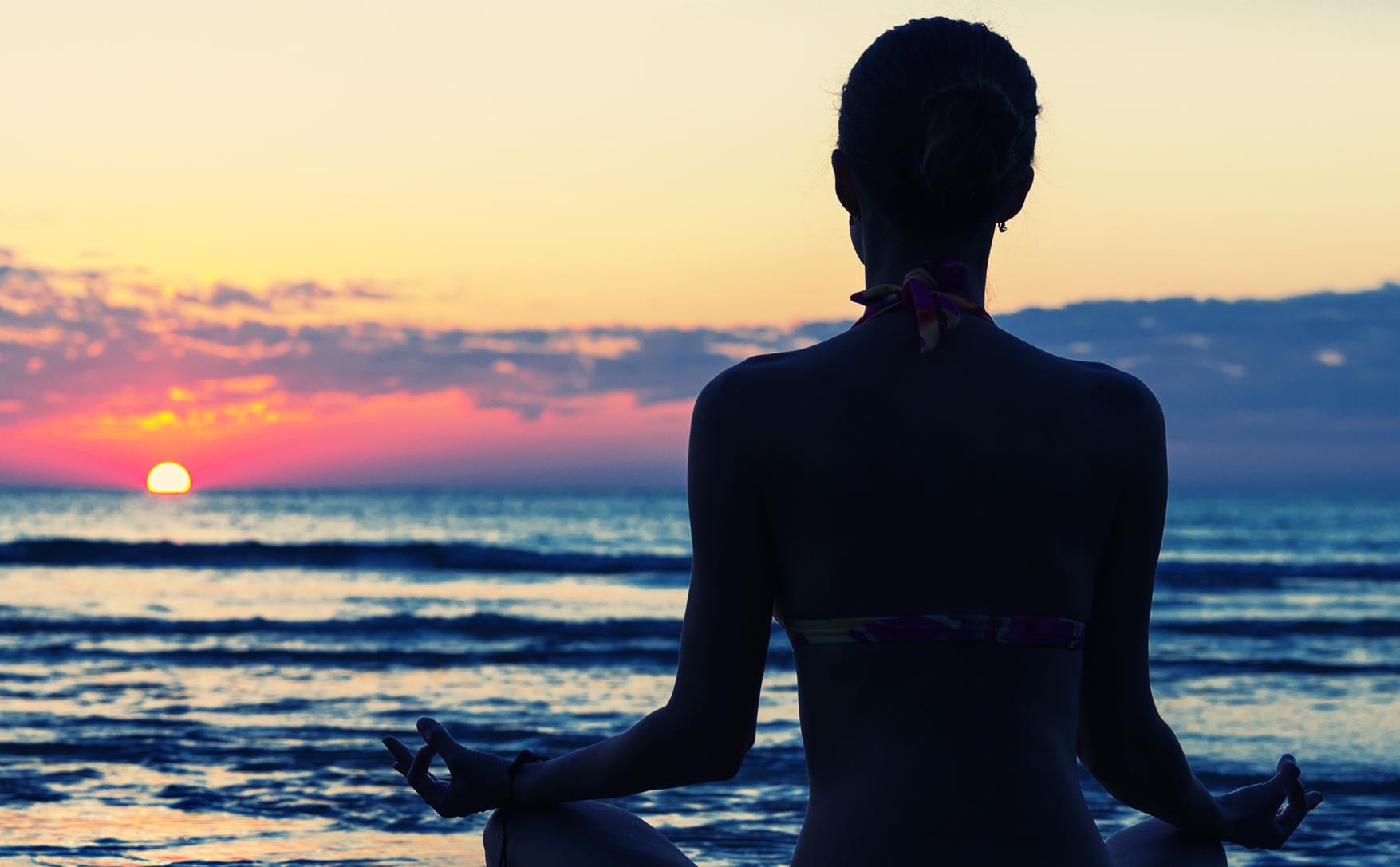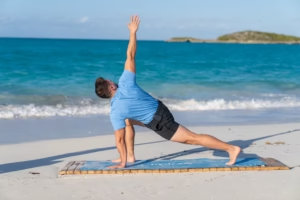Embarking on a spiritual journey is like setting sail on an uncharted sea—it’s thrilling, a bit daunting, and deeply personal. Whether you’re feeling lost, seeking deeper meaning, or simply curious about what lies beyond the daily grind, this guide will help you start your journey with clarity and confidence. Drawing from personal experiences, practical tools, and timeless wisdom, this article offers a roadmap to discovering your purpose while staying grounded in authenticity.
Why Start a Spiritual Journey?
A spiritual journey often begins when life feels misaligned—like wearing shoes that don’t quite fit. It’s a quest to understand who you are, why you’re here, and how to live with intention. This pursuit isn’t about becoming someone else but uncovering the truest version of yourself.
The Call to Something More
Many of us feel a quiet nudge—a sense that there’s more to life than work, bills, and routines. For me, it came during a late-night walk years ago, staring at the stars and wondering, “Is this it?” That moment sparked a lifelong quest for meaning, one that’s still unfolding.
Signs You’re Ready to Begin
Not sure if you’re ready? Certain signs often point to a readiness for spiritual exploration. Recognizing these can help you take the first step with confidence.
- Feeling Unfulfilled: Despite achievements, something feels missing.
- Curiosity About Life’s Big Questions: You’re asking “why” and “what’s the point?”
- Desire for Connection: A longing to connect with something greater—be it nature, the universe, or a higher power.
- Life Transitions: Major changes like loss, career shifts, or milestones often trigger spiritual curiosity.
What Does a Spiritual Journey Look Like?
A spiritual journey isn’t a one-size-fits-all path. It’s as unique as your fingerprint, shaped by your beliefs, experiences, and aspirations. At its core, it’s about self-discovery and aligning with your purpose.
Defining Spirituality for You
Spirituality doesn’t require a specific religion or dogma—it’s about what resonates with you. For some, it’s prayer or meditation; for others, it’s hiking in nature or creating art. My friend Sarah found her spiritual spark through gardening, feeling a profound connection to life’s cycles.
Common Paths to Explore
There’s no “right” way to be spiritual, but certain practices can guide you. Here are a few to consider:
- Meditation and Mindfulness: Practices to quiet the mind and connect with the present.
- Journaling: A tool to reflect on your thoughts and uncover insights.
- Nature Connection: Spending time outdoors to feel grounded and inspired.
- Community and Service: Engaging with others to foster a sense of purpose.
Steps to Begin Your Spiritual Journey
Starting a spiritual journey can feel overwhelming, but small, intentional steps make it manageable. Below is a practical guide to get you started, rooted in real-world experience and actionable advice.
Step 1: Reflect on Your Why
Before diving in, ask yourself why you want to start this journey. Are you seeking peace, purpose, or answers? When I began, I journaled for weeks, scribbling questions like, “What makes me feel alive?” This clarity shaped my path.
Step 2: Explore Different Practices
Try various spiritual practices to see what clicks. Think of it like tasting new foods—some will delight you, others not so much. Here’s a comparison of popular practices to help you choose:
| Practice | Time Commitment | Benefits | Best For |
|---|---|---|---|
| Meditation | 10–20 min/day | Reduces stress, enhances focus | Beginners seeking calm |
| Journaling | 5–15 min/day | Clarifies thoughts, tracks growth | Reflective types |
| Yoga | 20–60 min/session | Balances mind and body | Those who enjoy movement |
| Prayer | 5–10 min/day | Deepens faith, fosters connection | Religious or faith-based seekers |
Step 3: Create a Daily Ritual
Consistency is key. A simple daily ritual—like five minutes of deep breathing or gratitude journaling—builds momentum. I started with morning walks, using the quiet to set intentions. It’s less about time and more about commitment.
Step 4: Seek Guidance and Community
You don’t have to go it alone. Books, mentors, or spiritual communities can offer support. Joining a local meditation group helped me feel less isolated, and the shared stories were like guideposts on my path.
Step 5: Stay Open and Patient
Spiritual growth isn’t a race. Some days, you’ll feel enlightened; others, you’ll feel stuck. That’s normal. When I hit a rut, I remind myself of a quote by Rumi: “Beyond ideas of wrongdoing and rightdoing, there is a field. I’ll meet you there.”
Overcoming Common Challenges
Every journey has bumps. Here are common obstacles and how to navigate them, based on real experiences and practical solutions.
Doubt and Uncertainty
It’s natural to question if you’re “doing it right.” Early on, I worried my meditation wasn’t “deep” enough. The truth? There’s no perfect way. Trust your process and let go of comparison.
Time Constraints
Life is busy, but spirituality doesn’t need hours. Even five minutes of mindfulness during your commute can make a difference. Try micro-practices, like a quick gratitude list before bed.
Feeling Overwhelmed by Choices
With countless books, apps, and gurus out there, it’s easy to feel lost. Start small—pick one practice and stick with it for a month. I began with a single book, The Power of Now by Eckhart Tolle, and it was enough to spark curiosity.
Pros and Cons of Starting a Spiritual Journey
| Pros | Cons |
|---|---|
| Greater self-awareness | Can feel isolating at first |
| Improved mental clarity and peace | Requires patience and persistence |
| Stronger sense of purpose | May challenge existing beliefs |
| Deeper connections with others | Time commitment for busy schedules |
Tools and Resources to Support Your Journey
The right tools can make your spiritual journey smoother and more fulfilling. Below are some of the best resources, from apps to books, to help you stay on track.
Best Tools for Spiritual Growth
- Meditation Apps: Headspace and Calm offer guided sessions for beginners.
- Journaling Tools: Apps like Day One or a simple notebook work wonders.
- Books: Classics like Man’s Search for Meaning by Viktor Frankl or The Alchemist by Paulo Coelho inspire deep reflection.
- Online Communities: Platforms like Reddit’s r/spirituality or local meetups connect you with like-minded seekers.
Where to Find Free Resources
You don’t need to spend a fortune. Free YouTube channels like Yoga with Adriene or podcasts like On Being offer rich insights. Libraries often have spiritual books, and many meditation apps have free trials.
Transactional Tools for Growth
If you’re ready to invest, consider these paid options:
- Online Courses: Platforms like Udemy offer affordable spirituality courses.
- Retreats: A weekend retreat can deepen your practice (search “spiritual retreats near me” for options).
- Coaching: A spiritual coach can provide personalized guidance, though costs vary.
People Also Ask (PAA) Section
Here are real questions from Google’s “People Also Ask” feature, answered to provide clarity and value.
What is the purpose of a spiritual journey?
A spiritual journey is about discovering your purpose, values, and connection to something greater. It’s a personal exploration of meaning, often sparked by life’s big questions or a desire for inner peace.
How do I start my spiritual journey?
Begin by reflecting on your intentions, trying simple practices like meditation or journaling, and staying open to growth. Small, consistent steps—like a daily gratitude practice—build a strong foundation.
Can you be spiritual without being religious?
Absolutely. Spirituality is about personal connection to meaning, whether through nature, mindfulness, or creativity. Religion is just one path; many find purpose outside traditional frameworks.
How long does a spiritual journey take?
It’s a lifelong process, but you can feel shifts within weeks or months. The key is consistency and patience, as growth unfolds at its own pace.
FAQ Section
How do I know if I’m on the right spiritual path?
You’ll feel a sense of alignment—more peace, clarity, or joy. If a practice feels forced or draining, try something new. Listen to your intuition; it’s your best guide.
Do I need a guru or teacher to start?
No, but guidance can help. Start with books or online resources, and if you feel called, seek a mentor or community for support.
Can spirituality help with anxiety?
Yes, practices like mindfulness and meditation are proven to reduce stress and anxiety. They help you stay present and manage overwhelming thoughts.
What if I don’t believe in anything spiritual?
That’s okay. Spirituality can be as simple as finding meaning in everyday moments—like a walk in nature or helping others. Start where you are.
How do I stay motivated on my journey?
Set small goals, like meditating for five minutes daily, and celebrate progress. Connecting with a community or tracking your growth in a journal can keep you inspired.
Integrating Spirituality into Daily Life
A spiritual journey isn’t separate from life—it weaves into it. Here’s how to make it practical and sustainable.
Morning Rituals for Purpose
Start your day with intention. A five-minute gratitude practice or a short meditation can set a positive tone. I write three things I’m grateful for each morning—it’s like a warm hug for my soul.
Finding Meaning in Work
Your job doesn’t have to be “spiritual” to feel purposeful. Focus on how your work helps others, even in small ways. A barista friend of mine finds joy in brightening customers’ days with a smile.
Building Mindful Relationships
Spirituality deepens connections. Practice active listening or share gratitude with loved ones. These small acts create ripples of meaning in your relationships.
The Long-Term Impact of Your Journey
Over time, a spiritual journey reshapes how you see yourself and the world. You may notice:
- Increased Resilience: You’ll handle life’s ups and downs with more grace.
- Deeper Connections: Relationships become richer and more authentic.
- Clarity of Purpose: You’ll feel more aligned with what truly matters.
My journey began with that starry night, feeling small yet curious. Years later, I’ve found purpose in simple moments—writing, connecting with others, and embracing life’s mysteries. Your journey will be different, but it starts with one brave step.
Final Thoughts
Finding purpose through a spiritual journey is about curiosity, courage, and consistency. It’s not about having all the answers but asking better questions. Start small, stay open, and trust that your path will unfold. Ready to take the first step? Grab a journal, take a deep breath, and begin.
External Links
Internal Links







